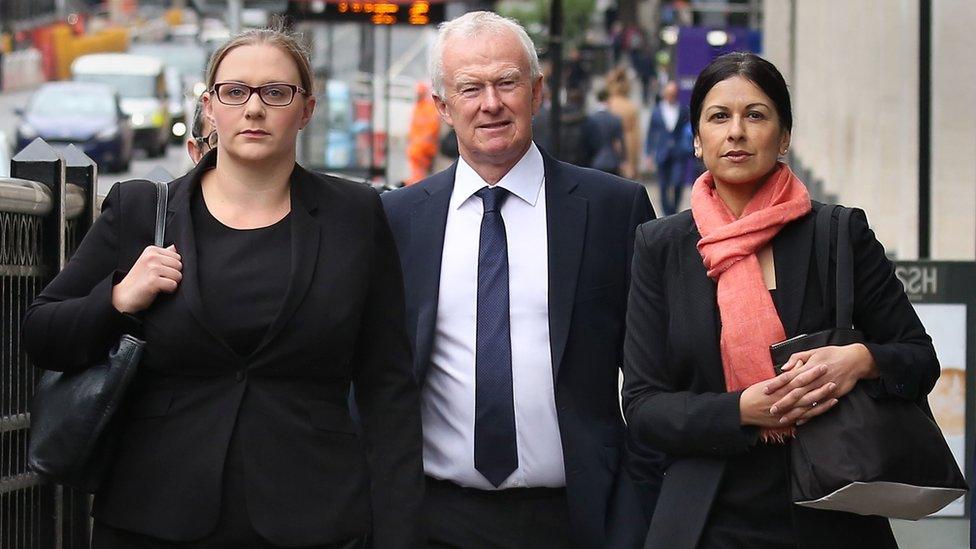Iraq torture case lawyer Martyn Day 'did not breach code of conduct'
- Published
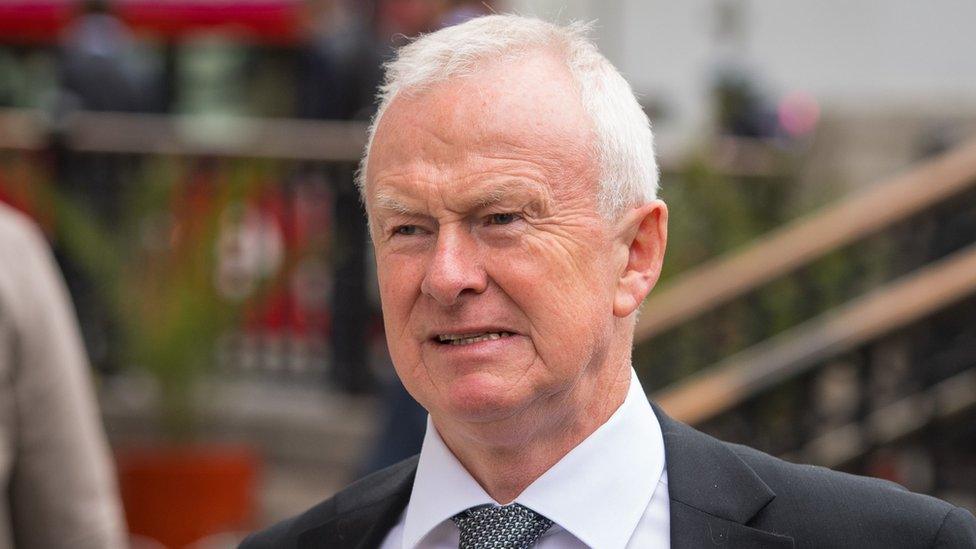
Martyn Day says the code of conduct is "ingrained" in him
A lawyer accused of improperly pursuing torture claims against British troops in Iraq has denied breaching his professional code of conduct.
Martyn Day, co-founder of law firm Leigh Day, and solicitor Sapna Malik deny 19 misconduct charges.
A tribunal has heard they allegedly continued to bring claims despite having evidence their Iraqi clients were not innocent civilians.
Mr Day said the solicitors' code of conduct was "ingrained" in him.
As well as the misconduct charges against him, his firm and Ms Malik being heard at the tribunal, another solicitor - Anna Crowther - denies an allegation of destroying a key document.
Leigh Day pursued damages claims against the Ministry of Defence over the alleged mistreatment and unlawful killing of captives following the Battle of Danny Boy in May 2004.
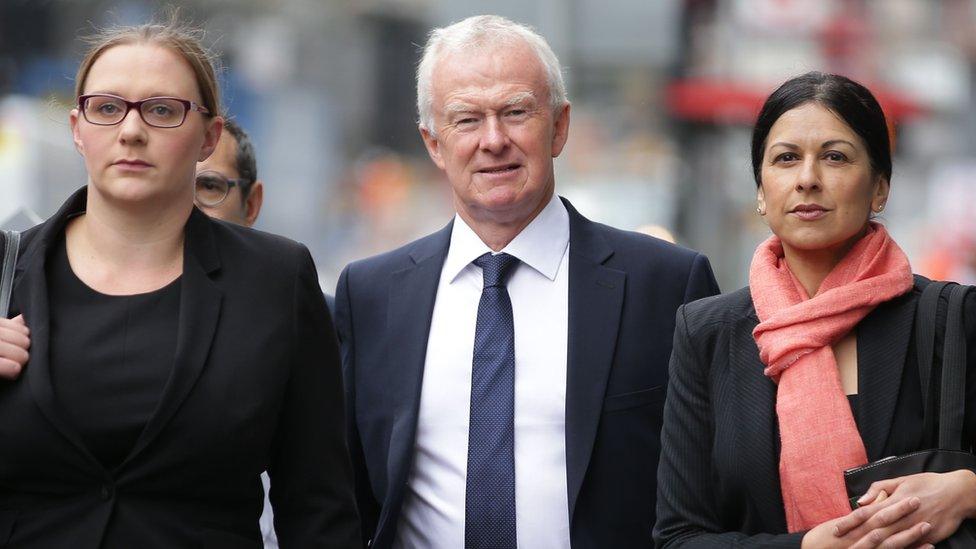
The lawyers deny the allegations against them
During a press conference in February 2008, Mr Day and now-disgraced lawyer Phil Shiner outlined accusations of the torture and execution of up to 20 Iraqi civilians, and the torture of a further nine at nearby Camp Abu Naji..
Among them was a claim by Khuder Al-Sweady that his nephew, Hamid Al-Sweady had been murdered and tortured by the British Army.
The resultant £31m Al-Sweady inquiry later dismissed the claims as "entirely false", and found Hamid had been an armed insurgent who died in battle.
The Solicitors Regulation Authority (SRA), which has brought the case, has accused Leigh Day of pursuing the claims despite holding key evidence that "undermined" their authenticity.
Leigh Day had a document showing the claimants were not civilians but linked to the radical Shia group Office of the Martyr Al Sadr (OMS), the tribunal has heard.
'Core duties'
Timothy Dutton QC, for the Solicitors Regulation Authority (SRA) suggested to Mr Day, who has been a practising solicitor for nearly 40 years, that he had "lost sight" of his professional responsibilities.
He claimed Mr Day had an agenda "to get the issue of what happened at Danny Boy and its aftermath at Camp Abu Naji into the world's media, because you thought that was the best strategy and you actually lost sight of those other duties that cause you to keep that kind of strategy in balance".
But Mr Day replied: "It (the code) was always in my mind, will always be in my mind should I remain a solicitor, that these are the six core duties that we have to try and ensure that we always maintain the integrity of what we do."
Mr Dutton put it to Mr Day: "If properly read, what you said at that press conference was you endorsing your client's claim, then it follows of necessity that they were accusing the Army of a cover-up."
Mr Day replied: "On the balance of the evidence that we had seen at that stage, we thought it was more likely to be true than not, but that it was important to have a public inquiry to get to the bottom of it."
The tribunal has previously heard from defence lawyer Patricia Robertson QC who said the firm had "no agenda" to make money from the eight war crimes claims.
- Published27 April 2017
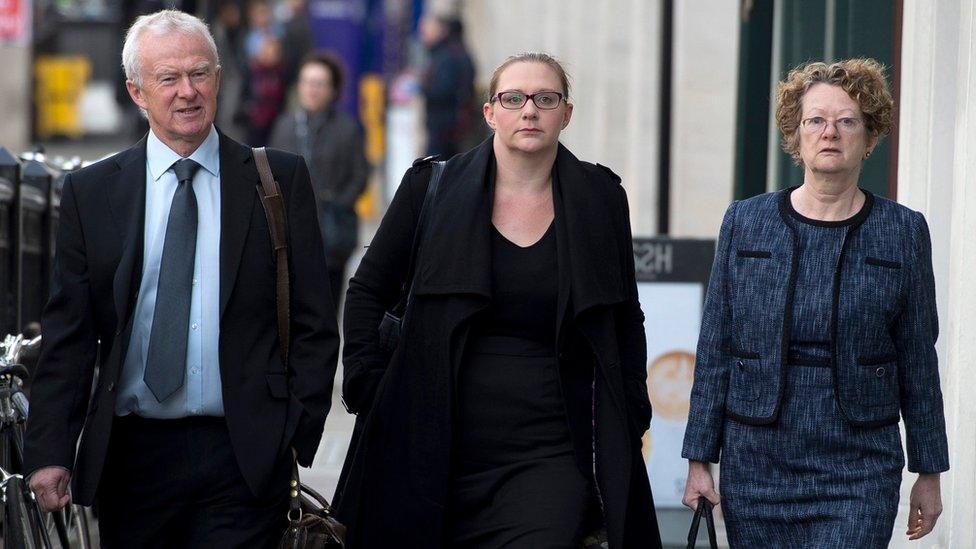
- Published26 April 2017
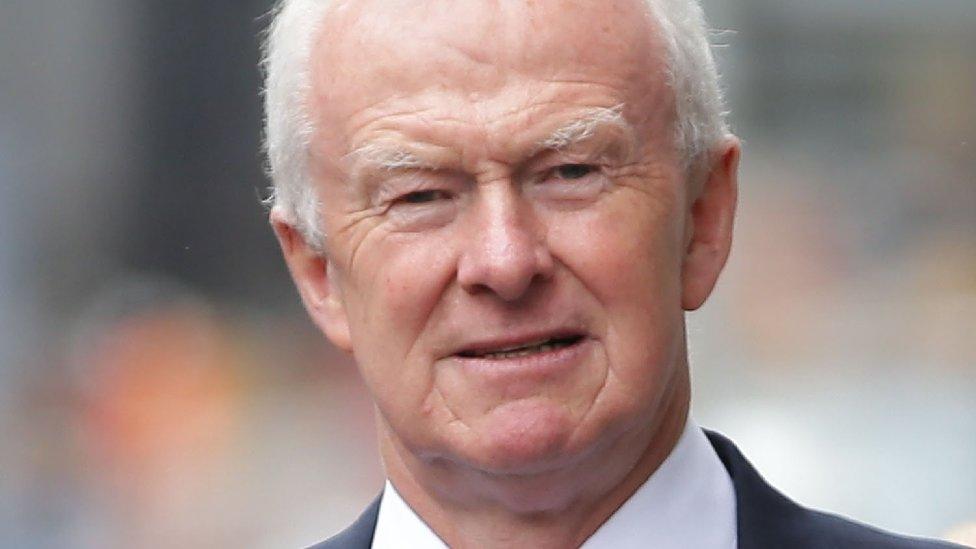
- Published24 April 2017
